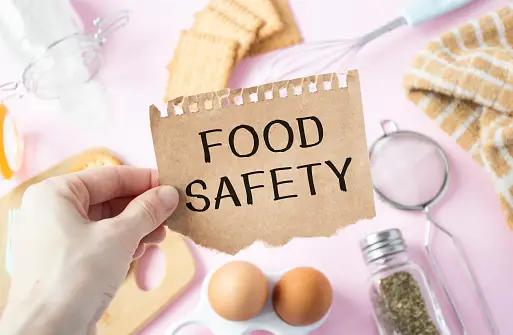FDA Warns of Toxic Amygdalin Presence in Apricot Seeds
May 24, 2024- The FDA has issued a warning regarding Apricot Power products after DCLS analysis revealed high amygdalin levels. This compound can lead to fatal cyanide toxicity upon consumption. Symptoms range from mild to moderate, such as difficulty breathing and weakness, to severe symptoms like seizures and coma.1
Amygdalin is a natural cyanogenic glycoside found in the seeds of certain edible plants. This compound has attracted medical interest due to its purported anticancer properties. Amygdalin can be toxic when enzymatically degraded, leading to the production of hydrogen cyanide. High doses of amygdalin can result in cyanide toxicity.2
The affected products include:
– Apricot Power – Bitter Apricot Seeds – NGR FY24-015 (California Select) – Net weight 8oz (227g)
– Apricot Power – Seeds Bitter Apricot Seeds – NGR FY24-016 (Organic Turkish Select) – Net weight 8oz (227g)
– Apricot Power – Seeds Bitter Apricot Seeds – NGR FY24-017 (South African Select) – Net weight 16oz (454g)
The Apricot Power products.
Image credits: FDA

Consumers are advised to cease use and dispose of these products immediately. If ingested, individuals should seek medical attention promptly, even if symptoms are absent.
Despite FDA notification and concerns, Apricot Power has declined to recall the products. The FDA is actively investigating and will provide updates as necessary. Meanwhile, consumers are urged to remain vigilant for adverse effects and report any concerns to the FDA.
CDC Warns Salmonella Outbreaks Affected 109 Individuals Across 29 States
May 23, 2024- A recent outbreak of Salmonella infection has afflicted 109 people across 29 states, with 33 individuals requiring hospitalization. Fortunately, no fatalities have been reported thus far.3
Children under 5 represent a significant portion of those affected, comprising 43% of the total cases.
To mitigate the risk of infection, individuals are advised to adhere to strict hygiene practices, including thorough handwashing after handling backyard poultry or their eggs. Close supervision of children around poultry is essential due to their heightened susceptibility to severe Salmonella illness.
Furthermore, close contact with backyard poultry, such as kissing or snuggling, should be avoided, as should eating, or drinking in their vicinity to prevent transmission of Salmonella bacteria. Safe handling procedures for eggs are also recommended to minimize the risk of contamination.
A woman feeding her backyard poultry.
Image credits: Unsplash

Most people infected with Salmonella experience diarrhea, fever, and stomach cramps. Symptoms usually start 6 hours to 6 days after swallowing the bacteria. Most people recover without treatment after 4 to 7 days. Some people—especially children younger than 5 years, adults 65 years and older, and people with weakened immune systems—may experience more severe illnesses that require medical treatment or hospitalization.”4
The outbreak underscores the risk posed by backyard poultry, which can harbor Salmonella bacteria even when appearing healthy. These bacteria can readily spread to surrounding environments and objects, increasing the likelihood of transmission through contact and ingestion.
References
-
FDA Issues Warning About Toxic Amygdalin Found in Apricot Seeds. Published May 24, 2024. Accessed June 1, 2024. https://www.fda.gov/food/alerts-advisories-safety-information/fda-issues-warning-about-toxic-amygdalin-found-apricot-seeds
-
Jaszczak-Wilke E, Polkowska Ż, Koprowski M, et. al. Amygdalin: Toxicity, Anticancer Activity and Analytical Procedures for Its Determination in Plant Seeds. Molecules. 2021 Apr 13;26(8):2253. doi: 10.3390/molecules26082253. PMID: 33924691; PMCID: PMC8069783.
-
CDC Newsroom. CDC warns of Salmonella outbreaks linked to backyard poultry flocks. Published May 23, 2024. Accessed June 1, 2024. https://www.cdc.gov/media/releases/2024/s0523-salmonella-poultry-flocks.html
-
Abene, S. The Impact of Whole-Genome Sequencing in Detecting Foodborne Illnesses. Contagion. Published February 6, 2024. Accessed June 1, 2024. https://www.contagionlive.com/view/the-impact-of-whole-genome-sequencing-in-detecting-foodborne-illnesses









Somebody essentially help to make significantly articles Id state This is the first time I frequented your web page and up to now I surprised with the research you made to make this actual post incredible Fantastic job